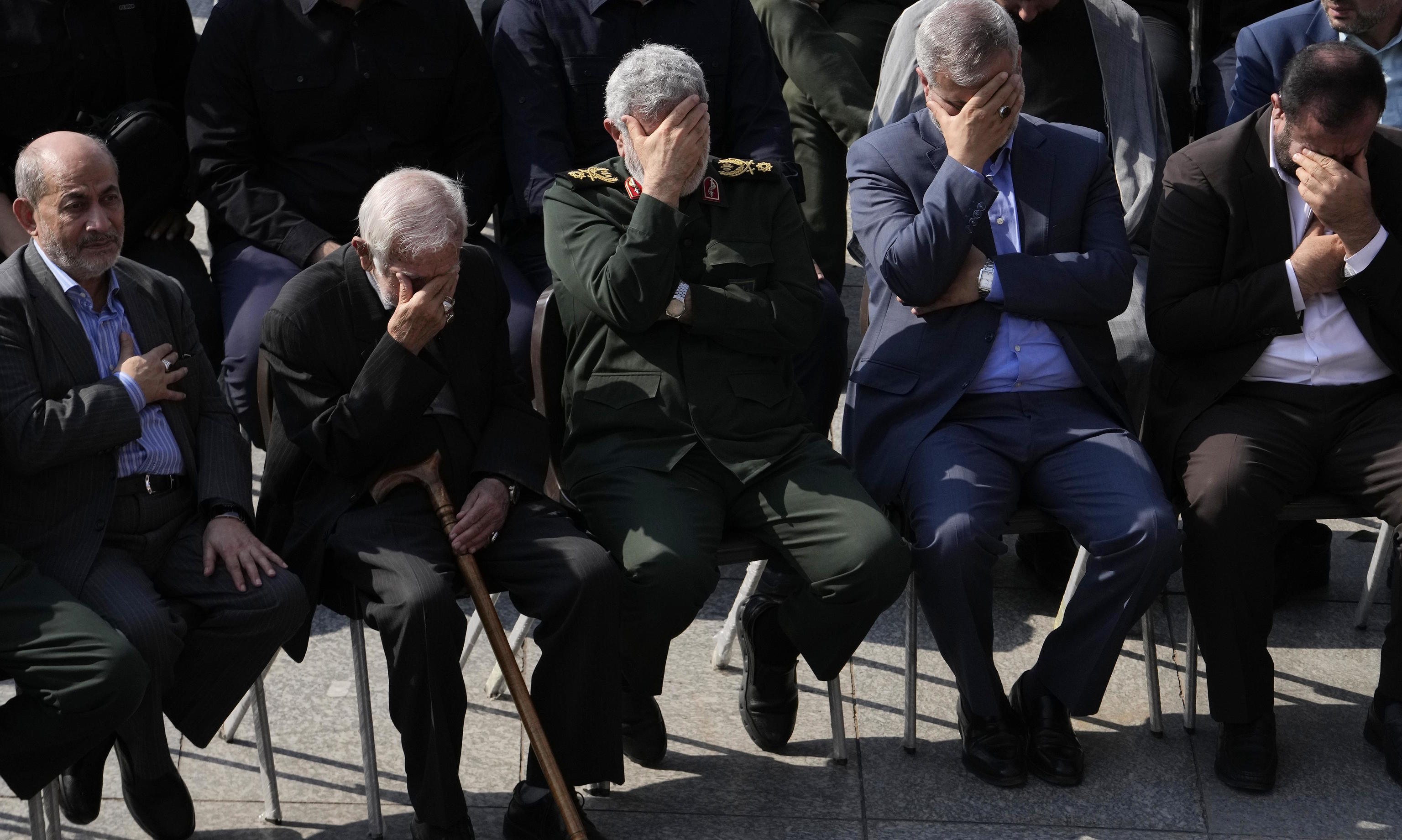General Esmail Qaani, the commander-in-chief of the Iranian Revolutionary Guard's Quds Force, reappeared after weeks of speculation about whether he had been injured in the Israeli bombing campaign against Beirut, in which Hezbollah leader Hassan Nasrala and General Abbas Nilforushan were killed.
Iranian state television aired images of Qaani on Tuesday, attending the funeral of Abbas Nilforushan, where the entire top leadership of the paramilitary organization was present, including the Guard's commander-in-chief, General Hossein Salami, among others, and Iranian President Masoud Pezeshkian.
Esmail Qaani was seen in a black bomber jacket, wiping away tears at an event early Tuesday morning at Tehran's Mehrabad International Airport. Although Iranian state television did not acknowledge the rumors, they made an effort to film Qaani for over a minute and later shared the footage of the ceremony at the airport on the internet.
A police officer has died and a member of the Israeli Red Cross has been injured as a result of a shootout at the Yavneh junction, about 30 km south of Tel Aviv. Hamas, following a stabbing attack in the city of Hadera, called for "more painful attacks against the occupation."
Israel says it will listen to the United States but will decide its actions according to its own national interest, said the office of the Israeli Prime Minister in a statement issued today.
The statement clarifies the claims made that Benjamin Netanyahu had told President Joe Biden's administration that Israel would target Iranian military targets, not nuclear or oil facilities, following Iran's missile attack on Israel on October 1st. These claims suggested a more limited counterstrike aimed at preventing a large-scale war.
On the other hand, the United Nations Security Council expressed its "strong concern" after Israel shot and wounded several UN peacekeepers in southern Lebanon, where fighting has intensified. The council reiterated its support for the peacekeeping mission in the region.
Stricter controls at Beirut airport
Lebanon is implementing stricter controls at Beirut airport to "eliminate any pretext" for Israel to attack it, according to the Lebanese Prime Minister.
Australia imposes selective financial sanctions and travel bans on five Iranians
Australia has imposed selective financial sanctions and travel bans on five Iranians contributing to the country's missile defense program, said the Foreign Minister, Penny Wong.
The launch by Iran of at least 180 ballistic missiles against Israel on October 1st was "a dangerous escalation that increased the risk of a wider regional war," Wong said in a statement.
The new sanctions target two directors and a senior official of Iran's Aerospace Industries Organization, the director of the Shahid Bagheri Industrial Group, and the commercial director of the Shahid Hemmat Industrial Group.
The decision brings the number of individuals and entities linked to Iran sanctioned by Australia to 200, which will continue to hold Iran accountable for its reckless and destabilizing actions.
